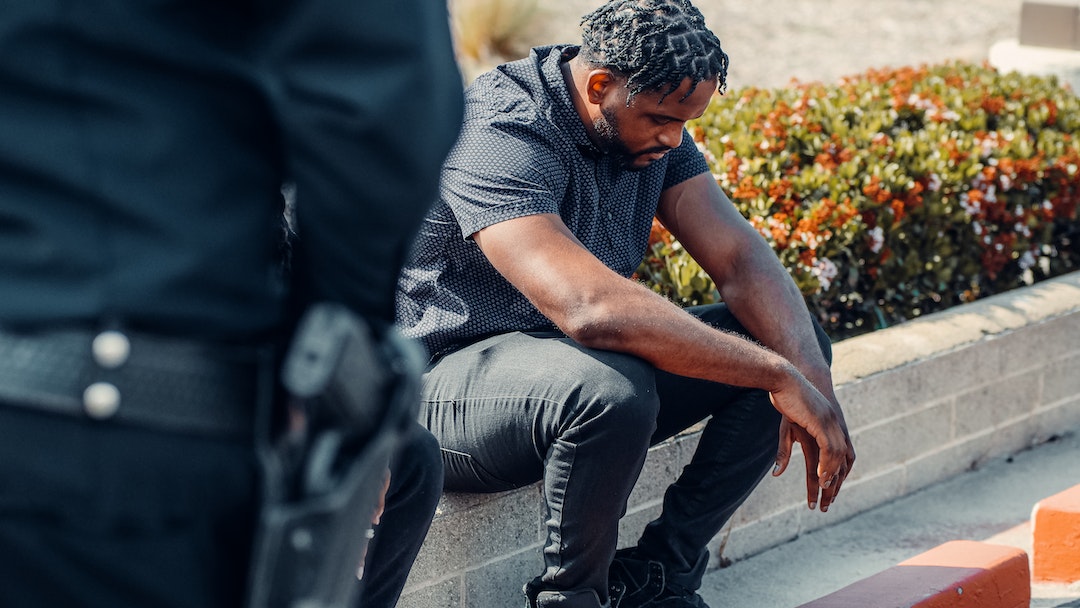
Aug 18, 2023 | Blog, Driving Privileges, Driving While High, Drugged Driving, DUI, Educational
Question: Can I have open alcohol in a trailer or camper that is being pulled on the road?
Answer: In most instances transporting or possession of open intoxicants in a vehicle is not permitted.
MCL 257.624a states in part, “a person who is an operator or occupant shall not transport or possess alcoholic liquor in a container that is open or uncapped or upon which the seal is broken within the passenger compartment of a vehicle upon a highway, or within the passenger compartment of a moving vehicle in any place open to the general public or generally accessible to motor vehicles, including an area designated for the parking of vehicles…”
There are limited exceptions in cases where the transportation of an open or uncapped alcoholic liquor in the passenger compartment of a vehicle are permitted.
They include times when the vehicle does not have a trunk or separate area from the passenger compartment, and the container is in a locked glove compartment, behind the last upright seat, or in an area not normally occupied by the operator. There are additional exceptions in the case of a chartered vehicle such as a limousine or chartered bus.
FAQ compliments of you the taxpayer and the MSP
Question: I need a lawyer for a DUI charge I got. Who should I call?
Answer: Komorn Law (248) 357-2550
If you or someone you know has been accused of a crime or DUI.
Call Komorn Law – Call Now 248-357-2550
Komorn Law Social Media
Recent Posts
Tag Cloud
Blog
Cannabis Science
Criminal Defense Attorney Michael Komorn
Driving
DUI
Forfeiture
Health Benefits of Marijuana
Hemp
Know Your Rights
Komorn Law Blog
LARA-MMFLA Info
Legalization
Marijuana Criminal Defense Attorney Michael Komorn
Medical Marijuana
Medical Marijuana Attorney Michael Komorn
Michigan Laws
Michigan Medical Marhuana Regulation
Michigan Medical Marijuana Act
Michigan Medical Marijuana Criminal Defense
Michigan Medical Marijuana Criminal Defense Attorney Michael Komorn
Michigan News
Michigan Supreme Court
News
Planet Green Trees Radio
Recent Victories
Supreme Court
Uncategorized
USA news
Victories Project
Your Rights
DISCLAIMER
This website and/or post may contain re-posted content, opinions, comments, ads, third party posts, outdated information, posts from disgruntled persons, posts from those with agendas, private stuff, work related information, non work related information and general internet BS. Therefore…Before you believe anything on the internet regarding anything and everything – do your research on “Official Government and State Sites”, Call the Michigan State Police, Check the State Attorney General Website and Consult an Attorney – Use Your Brain. You’re on the internet.

Mar 16, 2023 | Blog, Educational, Michigan Laws
What are the laws and penalties of disturbing the peace in Michigan?
Have you ever been in a situation where someone’s behavior was so disruptive that it made you feel uncomfortable or unsafe? Maybe it was someone yelling loudly in public, creating a disturbance at a party, or engaging in violent behavior. These types of behaviors are considered to be disturbing the peace and can result in serious legal consequences. In Michigan, there are laws in place to protect individuals from these types of disruptions. This article will discuss the types of behaviors that violate disturbing the peace laws and the penalties associated with them.
Law enforcement on the scene will make the determination of whether you are “disturbing the peace” a typical catch all charge or lowered charge negotiated down from a higher criminal allegation.
Types of Behaviors that Violate Disturbing the Peace Laws
According to Michigan law, disturbing the peace is defined as any act that disturbs or disrupts the public peace. This can include a wide range of behaviors such as:
Loud Noises
Loud noises are one of the most common forms of disturbing the peace. This can include anything from shouting or screaming loudly in public to playing loud music late at night. It’s important to note that while some noise may be unavoidable, excessive noise can be deemed as disruptive and may lead to legal action.
Noise Ordinances
Many cities and towns have specific noise ordinances in place to regulate loud noises within residential areas. These ordinances typically prohibit loud noises after a certain time period (usually 10 pm) and may also limit how much noise is allowed during specific hours.
Fighting or Physical Altercations
Any type of physical altercation or fighting can be considered disturbing the peace under Michigan law. This includes both verbal altercations that escalate into physical violence as well as fights that were premeditated.
Potential Consequences
The penalties for fighting or physical altercations vary depending on various factors like whether any injuries occurred, whether weapons were used, and if minors were involved. The penalties range from misdemeanors with potential fines up to $500 and/or up to 90 days imprisonment for simple assault charges to felonies carrying up to life imprisonment for more severe offenses like aggravated assault with intent to commit murder.
Disrupting Public Meetings
Public meetings such as city council meetings or community gatherings are intended for individuals to express their opinions respectfully without being interrupted by others’ unwelcome behavior.
Potential Consequences
If an individual disrupts a public meeting by using inappropriate language, making excessive noise, interrupting speakers repeatedly, etc., they may face charges for disturbing public meetings which carries possible jail time and fines up to $5000.
Disorderly Conduct
Disorderly conduct refers to any type of behavior deemed disorderly by law enforcement officials such as drunkenness causing a disturbance in public places or obscene language while walking down a street.
Potential Consequences
Individuals convicted under disorderly conduct charges may face up-to 90 days imprisonment or potential fines up-to $500 depending on severity.
Penalties Associated with Violating Disturbing the Peace Laws
The penalties associated with violating disturbing the peace laws vary widely depending on several factors such as prior criminal record and severity of crime committed; age ranges also play an important role when sentencing juveniles/young adults who violate these laws.
In Michigan:
For first-time offenders who engage in minor disturbances likely pay fines ranging from $50-$200.
Repeat violators will face harsher sentences including jail terms up-to 93 days imprisonment.
If minors are involved then there is an increased possibility for juvenile detention centers.
Conclusion
Disturbing the peace laws exist across states across America because they’re designed solely keeping citizens’ safety interests intact while not letting anyone else cause discomfort due to unruly behavior regardless of circumstances behind said unacceptable actions. Noise-related violations are by far some common disruptions; however, fighting & altercations at events involving large crowds also pose problems frequently. Likewise, breaking municipal rules during official functions could spark debates; disrupting social settings through disorderly conduct makes matters worse altogether.
Therefore, it’s essential everyone abides by state-mandated regulations about disturbing-the-peace policies failing which one could face legal consequences outlined above. Hopefully, this article has shed light on what constitutes disturbing-the-peace scenarios & the necessary steps required for avoiding them altogether!
If you or someone you know has been accused of a crime, DUI or Drugged Driving. Call Komorn Law and turn your defense into an offense.
Call Now 248-357-2550
Michigan Laws
State Michigan Legislature – Michigan Compiled Laws
Check the state MCL website here for any updates and of course consult an Attorney.
THE MICHIGAN PENAL CODE (EXCERPT)
Act 328 of 1931
750.167 Disorderly person; subsequent violations by person convicted of refusing or neglecting to support family; breastfeeding or expressing breast milk exempt.
Sec. 167.
(1) A person is a disorderly person if the person is any of the following:
(a) A person of sufficient ability who refuses or neglects to support his or her family.
(b) A common prostitute.
(c) A window peeper.
(d) A person who engages in an illegal occupation or business.
(e) A person who is intoxicated in a public place and who is either endangering directly the safety of another person or of property or is acting in a manner that causes a public disturbance.
(f) A person who is engaged in indecent or obscene conduct in a public place.
(g) A vagrant.
(h) A person found begging in a public place.
(i) A person found loitering in a house of ill fame or prostitution or place where prostitution or lewdness is practiced, encouraged, or allowed.
(j) A person who knowingly loiters in or about a place where an illegal occupation or business is being conducted.
(k) A person who loiters in or about a police station, police headquarters building, county jail, hospital, court building, or other public building or place for the purpose of soliciting employment of legal services or the services of sureties upon criminal recognizances.
(l) A person who is found jostling or roughly crowding people unnecessarily in a public place.
(2) If a person who has been convicted of refusing or neglecting to support his or her family under this section is charged with subsequent violations within a period of 2 years, that person shall be prosecuted as a second offender or third and subsequent offender as provided in section 168, if the family of that person is then receiving public relief or support.
(3) A mother’s breastfeeding of a child or expressing breast milk does not constitute indecent or obscene conduct under subsection (1) regardless of whether or not her areola or nipple is visible during or incidental to the breastfeeding or expressing of breast milk.
750.168 Disorderly person; penalty.
Sec. 168.
(1) Except as provided in subsection (2), a person convicted of being a disorderly person is guilty of a misdemeanor punishable by imprisonment for not more than 90 days or a fine of not more than $500.00, or both.
(2) A person convicted of being a disorderly person under section 167d is guilty of a felony punishable as follows:
(a) Except as provided in subdivision (b), by imprisonment for not more than 2 years or a fine of not more than $5,000.00, or both.
(b) If the person was previously convicted of violating section 167d, by imprisonment for not more than 4 years or a fine of not more than $10,000.00, or both.
328-1931-XXIX – CHAPTER XXIX DISTURBING MEETINGS (750.169…750.170)
Komorn Law Social Media
Recent Posts
Tag Cloud
2021
BMMR
cannabis
CBD
corruption. prosecutors
dispensary
Driving
DUI
forfeiture
gun rights
hemp
komornlaw
lara
law enforcement abuse
laws
Legalization
marijuana
Medical Marijuana
Michigan
michigan laws
michigan news
MMFLA
MRA
news
police
politics
science
usa news
us supreme court
Your Rights
DISCLAIMER
This post may contain re-posted content, opinions, comments, ads, third party posts, outdated information, posts from disgruntled persons, posts from those with agendas, private stuff and general internet BS. Therefore…Before you believe anything on the internet regarding anything – do your research on “Official Government and State Sites”, Call the Michigan State Police, Check the State Attorney General Website and Consult an Attorney – Use Your Brain. You’re on the internet.

Jan 20, 2023 | Blog, Educational, Know Your Rights, Michigan Laws
When you’re pulled over by the police and your friend throws their stash under your seat. Are they still your friend? That’s up to you. But at the moment you probably are going to take the fall, pay the price and have your life turned inside out and upside down. The justice system is hungry… and it eats money to keep it fat.
In Michigan, if drugs are discovered in your car, you as the driver are responsible for them. Under Michigan law it is assumed that you have control of any property that may be present inside your vehicle, you could be arrested and charged with possession.
While you cannot always control what a passenger brings into your vehicle, you can still get into trouble if they have an illegal substance on their person. Even if you are in possession of the illegal drugs, you can still be charged with constructive possession.
To Consent or not to Consent
A police officer cannot search your car without either your consent or reasonable suspicion. If a search was conducted unlawfully, the evidence might be suppressed, which would be to your advantage and possibly lead to the drug case being dismissed.
Although they may do so without your consent, the best preventive measure is to never consent to a police search of your vehicle. But if they already have discovered a friend’s drugs in your car, it’s crucial that you remain silent and refuse to give any interviews or statements without your lawyer present.
Admit Nothing
The majority of the time, when police have reason to believe you knew drugs were in your car, it’s because you confessed to knowing. Don’t make any admissions!
Police frequently act as though they are trying to help you or even say things that will make you think that cooperating with them might be advantageous for you. Always keep in mind that the police are not your friends and that admitting that you were aware that drugs were present will not help your case.
Even if the drugs in your car actually belong to a friend and you had nothing to do with their possession, the police must link you to their possession in order to arrest you.
If you or someone you know has been accused of a crime, DUI or Drugged Driving. Call Komorn Law and turn your defense into an offense.
Call Now 248-357-2550
Don’t Take the Fall
Whether or not you knew that a friend’s drugs were in your car—and even if you didn’t—you could still be arrested. You must act to defend yourself because the drugs were discovered in a vehicle that is yours.
Prosecutors frequently hear the justification that “the drugs were someone else’s” because people are frequently stopped by police and claim that any drugs found in their vehicles were not theirs despite the fact that they were. “
The most crucial action you should take if the police find your friend’s drugs is to gather all the information and speak with an experienced Michigan criminal defense attorney.
Drug Possession and Criminal Defense Lawyer offers aggressive defense against DUI, Driving While High, Marijuana, Medical Marijuana and all criminal charges in Oakland County, Macomb County, Lapeer County, Washtenaw County, Ann Arbor, Birmingham, West Bloomfield, Grand Rapids, Lansing and The entire State of Michigan. Michigan.gov
Komorn Law Social Media
Recent Posts
Tag Cloud
2021
BMMR
cannabis
CBD
corruption. prosecutors
dispensary
Driving
DUI
forfeiture
gun rights
hemp
komornlaw
lara
law enforcement abuse
laws
Legalization
marijuana
Medical Marijuana
Michigan
michigan laws
michigan news
MMFLA
MRA
news
police
politics
science
usa news
us supreme court
Your Rights
DISCLAIMER
This post may contain re-posted content, opinions, comments, ads, third party posts, outdated information, posts from disgruntled persons, posts from those with agendas, private stuff and general internet BS. Therefore…Before you believe anything on the internet regarding anything – do your research on “Official Government and State Sites”, Call the Michigan State Police, Check the State Attorney General Website and Consult an Attorney – Use Your Brain. You’re on the internet.















